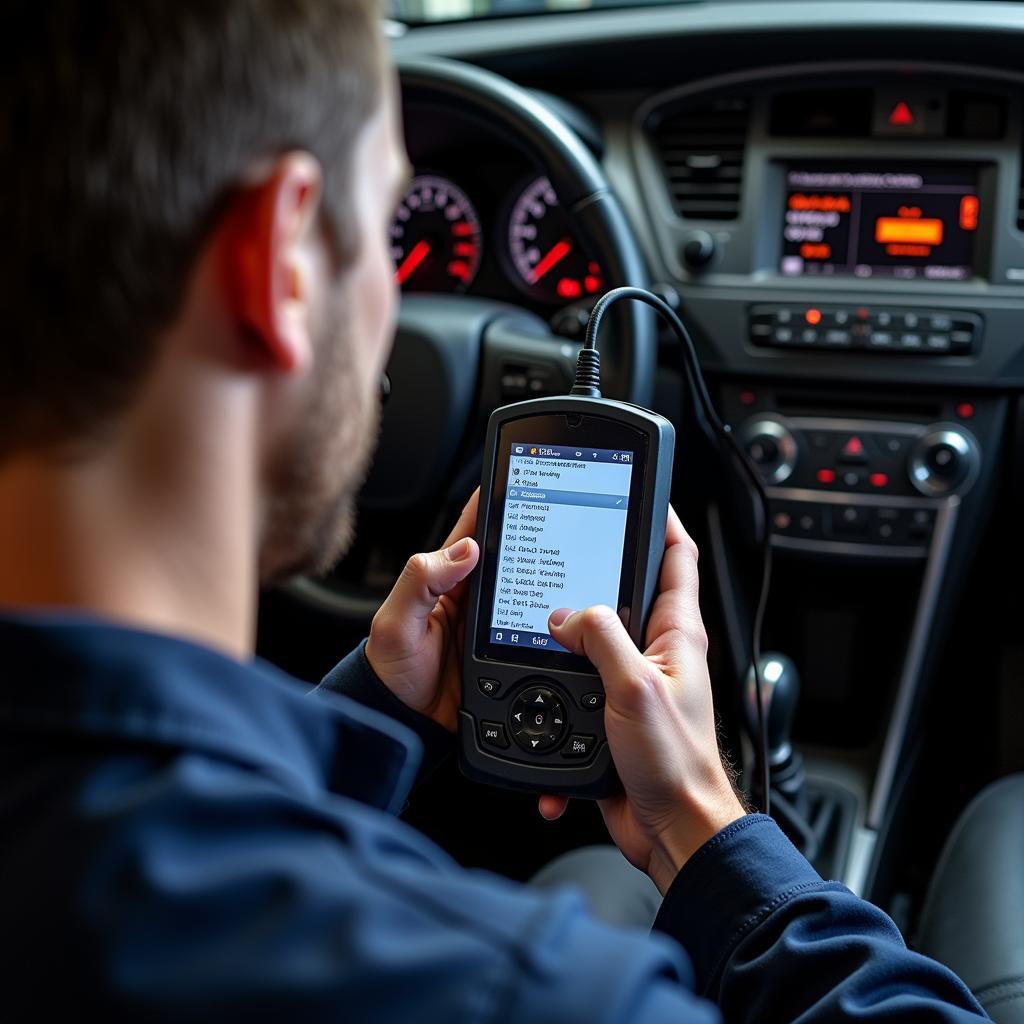Car Tuning Problems can be a real headache, whether you’re a seasoned mechanic or a car enthusiast tinkering in your garage. From performance hiccups to unexpected error codes, diagnosing and fixing these issues can be challenging. This article dives deep into common car tuning problems, providing practical solutions and expert insights to help you get your vehicle back on track. We’ll explore everything from basic maintenance checks to more complex electronic control unit (ECU) issues, equipping you with the knowledge to tackle these challenges head-on. Let’s get started!
One frequent issue encountered after tuning a car involves problems with the Kenwood car stereo, often stemming from incorrect wiring or software incompatibility. More information can be found at kenwood car stereo problems.
Understanding the Root Causes of Car Tuning Problems
Before diving into solutions, it’s crucial to understand the potential sources of car tuning problems. These can range from simple oversights to more complex technical glitches. Common culprits include incorrect fuel mixture ratios, faulty sensors, boost leaks, and improper ignition timing. Identifying the root cause is the first step towards effective troubleshooting. For instance, a rich fuel mixture can lead to decreased performance and increased emissions, while a lean mixture can cause engine damage.
Have you ever wondered why your muscle car isn’t performing as expected after a tune-up? muscle car problems provides valuable insights into addressing these common issues.
Diagnosing Car Tuning Problems: A Step-by-Step Guide
Diagnosing car tuning problems requires a systematic approach. Here’s a practical guide:
- Check for Error Codes: Use an OBD-II scanner to retrieve any diagnostic trouble codes (DTCs) stored in the ECU. These codes provide valuable clues about the nature of the problem.
- Inspect Vacuum Lines and Hoses: Look for cracks, leaks, or loose connections in vacuum lines and hoses, as these can disrupt air intake and fuel delivery, leading to performance issues.
- Examine Sensors: Check the functionality of critical sensors such as the mass airflow sensor (MAF), oxygen sensor (O2), and manifold absolute pressure (MAP) sensor. Faulty sensors can provide incorrect data to the ECU, leading to improper tuning adjustments.
- Analyze Data Logs: If you’re using tuning software, analyze data logs to identify any anomalies in parameters such as boost pressure, air/fuel ratio, and ignition timing.
Another common tuning issue involves incorrect speed calculations, similar to the scenario described in speeder and police car physics problem 33.3 m s. Understanding the physics behind speed and acceleration is critical for accurate tuning.
Common Car Tuning Problems and Solutions
## Dealing with Poor Fuel Economy
Poor fuel economy after tuning can stem from various factors, including an overly rich fuel mixture or aggressive ignition timing. Adjusting these parameters can often improve fuel efficiency.
## Addressing Performance Issues
Performance issues, such as hesitation or lack of power, can be caused by problems with ignition timing, fuel delivery, or boost leaks. Addressing these issues individually can restore optimal performance.
“Accurate data logging is essential for identifying and resolving performance issues after tuning. It allows you to pinpoint the specific parameters causing the problem,” says automotive engineer, John Miller, specializing in vehicle diagnostics.
 Diagnosing Car Tuning Problems with an OBD-II Scanner
Diagnosing Car Tuning Problems with an OBD-II Scanner
Tuning issues can also affect acceleration, as demonstrated in the raace car of problem 4 increases its speed. Careful adjustments to various parameters can improve acceleration performance.
Preventing Car Tuning Problems
Prevention is always better than cure. Here are some tips to minimize the risk of car tuning problems:
- Regular Maintenance: Ensure your vehicle is well-maintained before undertaking any tuning modifications. This includes regular oil changes, spark plug replacements, and air filter cleaning.
- Quality Parts: Use high-quality aftermarket parts designed specifically for your vehicle’s make and model. Inferior parts can negatively impact performance and reliability.
- Professional Tuning: Consider having your car tuned by a reputable professional with experience in your specific vehicle. This minimizes the risk of errors and ensures optimal performance gains.
Another common area for problems after tuning relates to the car’s audio system, as highlighted in mini car radio problems. It’s important to check for any interference or compatibility issues with the newly tuned settings.
Conclusion
Car tuning problems can be frustrating, but with the right approach, they can be effectively diagnosed and resolved. By understanding the potential causes, following a systematic diagnostic process, and implementing preventive measures, you can ensure your tuned vehicle performs at its best. Remember, regular maintenance and the use of quality parts are crucial for long-term reliability and optimal performance.
For further assistance with your car tuning needs, don’t hesitate to connect with the experts at AutoTipPro. We’re here to help you get the most out of your vehicle.
Contact us at +1 (641) 206-8880 or visit our office at 500 N St Mary’s St, San Antonio, TX 78205, United States.





Leave a Reply